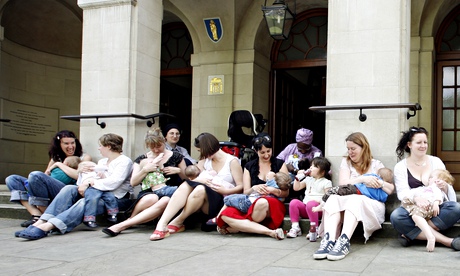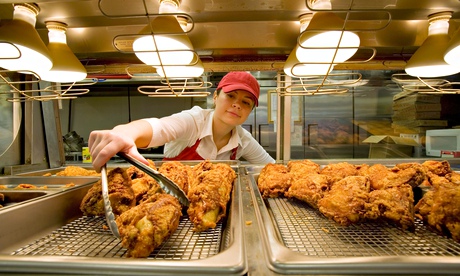
Cameron and Hollande. ‘Your demands became even more outrageous… Two vetoes in 10 years, that takes some nerve.’ Photograph: Andrew Winning/Reuters
There is, between you and us continental Europeans, a disagreement which is turning ugly. Your immense history justifies a limitless admiration for you. You were the inventors of democracy and of human rights, you dominated the world for centuries, first ruling the oceans and after that the world of finance. And when apocalypse threatened, your courage and tenacity – you held on long, American and Russian help arriving late in the day – saved our honour and freedom.
We know this and we have never shied away from saying, including in this commemorative week, that we owe you an immense debt. This should not, however, allow you to treat us with contempt and double-dealing.
You do not like Europe – that is your right and it is understandable. You nevertheless joined 41 years ago, but on a misunderstanding. You never shared the true meaning of the project which Winston Churchill, speaking on your behalf, set out in Zurich in 1946 with his incredible words: “We must build a kind of United States of Europe … Great Britain, the British Commonwealth of Nations, mighty America – and, I trust, Soviet Russia … must be the friends and sponsors of the new Europe and must champion its right to live.”
Were you not listening? These were the thoughts of a giant, shared by another giant, Charles de Gaulle.
You wanted trade, and you thought about nothing else. With President de Gaulle gone, you were able to join. But from this point you never, ever allowed even the smallest step towards greater integration, or even the smallest expansion of genuinely joint decisions.
The European community did trade, which suited you, because it defined itself as an economic community, but for those things that should be at the very heart of an economy – taxation, dispute settlement law, social policy – you demanded and imposed the continuation of unanimous decision-making. You wanted paralysis. So many neighbouring countries applauded and envied our achievements and wanted to join. You supported each enlargement; we did too, even though we knew it would dilute the community. But you never allowed the slightest deepening of the union. Europe remained bogged down and badly run, an economic giant, a political dwarf.
Eventually the size and success of the European community meant that it made little sense for it to be involved only in the economic aspects of our shared lives. Diplomacy, defence, justice were all raised. You succeeded in limiting joint political actions to a few narrowly defined circumstances and instances.
Thanks to you, the Maastricht treaty was a failure and only narrowly voted through. You did not have to do much to ensure that the Amsterdam and Nice treaties and the constitutional convention would also be flops because they changed little. Paralysis was guaranteed, because you had already got what you wanted. But you had to make things worse. When you didn’t like the agreed rules, you tore them up by seeking derogations, “I want my money back” agreements such as the British budget rebate, and eventually the right to opt out of policies altogether when they did not suit you.
But your demands became even more outrageous. Amid the paralysis and growing anger the continental desire grew for stronger and more powerful leaders.
The nationalities of the Belgian Jean-Luc Dehaene and the Luxembourger Jean-Claude Juncker could not have bothered you, it was enough that they were federalist in outlook, had strong voices and would not be easily pushed around. Two vetoes in 10 years, that takes some nerve. You dared to do it.
Europe is dying from it. The most recent elections have confirmed this. Even the euro, the only policy that you could not block, yet whose rules you were involved in writing, and which therefore bear your influence, remains weak and suffers from the lack of oversight that you were able to make sure would prevail across the EU.
I know, you are not completely alone in this. The refusal to recognise a common European interest, always putting the national interest first – you reintroduced these ideas and made them contagious. Nobody is perfect. Acknowledge at least that you deserve the prize.
Out of this disaster and ahead of the European elections, the tenacious among us managed to inject more democracy into the rules. So it was agreed that the majority in the European parliament would choose the European commission presidency. It hardly changes the essence, but it is a start, a way to begin restoring public interest and engagement. Personally, I voted for Martin Schulz as it would trouble me to see somebody with a monetarist outlook at the head of the commission. But the people have spoken. It may be relative, but there is a majority and its leader is Jean-Claude Juncker, a bold and courageous federalist. Democracy demands that he become the president of the European commission. But you want to prevent this. You want to break the process by which a more democratic Europe could emerge. You are stopping Europe finding the democratic force and legitimacy that it needs. A leader picked in these circumstances will be weakened. But this is what you want. Without internal democracy Europe is unworthy, and is in the process of dying. And you are sending us back to that Europe, you despise us so much. What right do you have? And beware, this contempt will backfire on you. You will eventually be right.
Now you pretend to want to exit; the majority of your people are in no doubt about it. But you have a banking interest in remaining to capitalise on the disorder that you have helped to create.
So go before you wreck everything.
There was a time when being British was synonymous with elegance. Let us rebuild Europe. Regain your elegance and you will regain our esteem.
This article was published in Le Monde on 5 June 2014

















